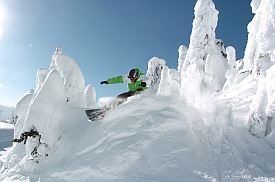This is were a majority of the jobs are to be found and is an ideal destination for people seeking a strong social scene, lively après ski programs or people new to the industry with little or no previous work experience. Due to the number of people employed in these programs, teams of workers are normally large, resorts are close together, managers or supervisors are close at hand in time of need and the clients tend to want to ski as well as party!
Destinations are varied and most UK operators decide on your actual working resort once you have completed the initial training course (this is normally held in one of the larger resorts in mid-November); obvious countries where you could end up are Italy, France, Bulgaria, Austria, and Switzerland. The destination decision usually lies with the senior company managers based on your performance and skills exhibited during training and as well as the previously mentioned countries, you could end up heading to Norway, Sweden, Andorra, Slovenia, or Finland.

European Ski Area Employment Opportunities
If all of this sounds appealing we would recommend having your CV up to date and ready to send out by the end of May (if you need some tips on creating an effective CV, see related articles on Working Abroad) it is also a good idea to have a draft cover letter prepared that highlights any relevant skills or experience supporting your application and summarising what you can bring to the role you’ve applied for. If you have any kind of tangible customer service skills or experience then try to include this as most roles in the mountains involve making holiday-makers happy; you should also draw attention to any language skills that you have. It’s almost disappointing to say that most positions don’t need any foreign language skills at all but there are a few employers who would prefer it or consider it a must. Again, don’t let this put you off in any way! If you’re fortunate enough to already have a language qualification then be sure to highlight this as early as possible (someone with a French GCSE will stand a better chance of employment than someone without one!) This can of course be worked on and you could always get a home teaching kit to raise your game; a language test could be part of the interview process so even a quick brush up may serve you well.
Companies normally start advertising jobs for the coming ski season in June / July; you should check operator/company websites (simply type in ‘ski holidays’ to any search engine and look for the ‘contact us’ or ‘jobs’ links in each company site), seasonal working websites and your copy of Working Abroad for more details. If you are selected for interview this can involve a range of different exercises including a face-to-face interview, practical exercises or presentations and some group work so preparation is the key to performing well in these areas. If you are successful you may find a role bagged as early as August, giving you a couple of months to get excited and prepared!
It is also possible to get jobs in European resorts on the spot but this is more of a gamble as local employers tend not to recruit outside of resort; if you fancy working in a local shop, bar or club then the earlier you can get to the resort, the better. The only downside here is that you will need your own accommodation, a good deal of confidence as well as a command of the local dialect to greatly increase your chances of employment as competition to be the ultimate ski bum may be fierce!
North America Ski Jobs (USA, Canada) =>